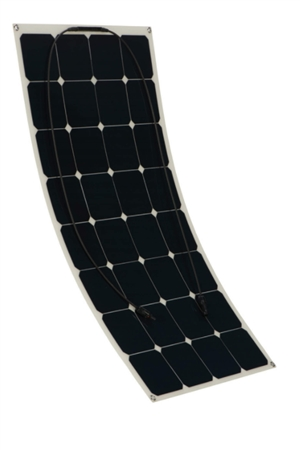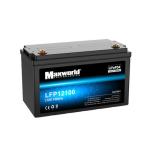- Solar Panels
- Flexible solar panels
Flexible solar panels are lightweight
Flexible solar panels are
versatile and come in very handy. They are well
known, and we can use them for various applications. The panels are especially
useful if you need a portable solar module.
It is not that these flexible
panels are too flimsy. It is just that
they are bendable. You can bend them up to 30 degrees. Over bending can cause
micro-cracks resulting in a drop in efficiency.
The panels are
multi-functional. Use these panels for a wide variety of surface
shapes. It will still provide the same wattage. This is one of the big
advantages when comparing with rigid (traditional) solar panels.
In general, it is best to use
these panels for mobile solar needs where you do not need large power outputs.
This is because they are durable, lightweight and bendable, and quite easy to
handle.
Applications
Use for trekking.
Cycling.
Kayaking.
Climbing expeditions.
Boats.
Daily power backup.
Fishing/yachting trips.
Long-distance travel in an RV.
Camping trips.
Power banks on your tent.
Advantages
- Flexible solar panels come with ease of portability.
- The flexible modules are much lighter than rigid panels.
- You can glue these panels onto a surface if you need to. Drilling holes are not always necessary.
- When you have rounded roofs, it is possible to bend these panels to make them follow the contour of the roof.
- When your roof cannot carry a heavy load, you can change over to flexible solar panels. You do not need mounting systems that are heavy and difficult to handle and mount.
- These panels are much easier to handle than rigid solar panels. It is thus easier to install resulting in less cost for labor.
- The flexible modules perform very well under low light conditions.
Disadvantages of the flexible solar panels
- Manufacturers use amorphous technologies for the manufacturing of these panels. These technologies need a larger area per watt than crystalline technologies.
- Flexible solar panels tend to be more expensive than traditional solar panels.
- They are less efficient. They also have shorter warranty periods when compared to rigid panels.
- The panels are prone to damage and you must take care when installing them. Take care. Do not allow things like overhanging branches to scratch these panels. The flexible panels are less durable than the rigid ones.
- You can glue these panels to a roof, but then heat becomes a problem. You do need an air gap between the surface and the panel for heat dissipation. The best is to put a spacer between the panel and the surface you attach it to.
- Being lightweight is a big advantage when you compare to rigid solar panels. Be aware though that your installation must be secure. High winds can destroy these panels if they come loose.
To Mention
Please install the panels so that you do not have to walk on the panels. Too much weight will damage the panels.
Always remember to do not bend too much to prevent micro cracks.
Warranty
The warranty is much shorter than rigid solar panels. About 2 to 5 years, while the rigid solar panels can be 20 years or more.
In a conclusion
Remember flexible solar panels are bendable, portable, and easy to handle.
They are a good choice when applying in the right manner.


New! Comments
Have your say about what you just read! Leave me a comment in the box below.